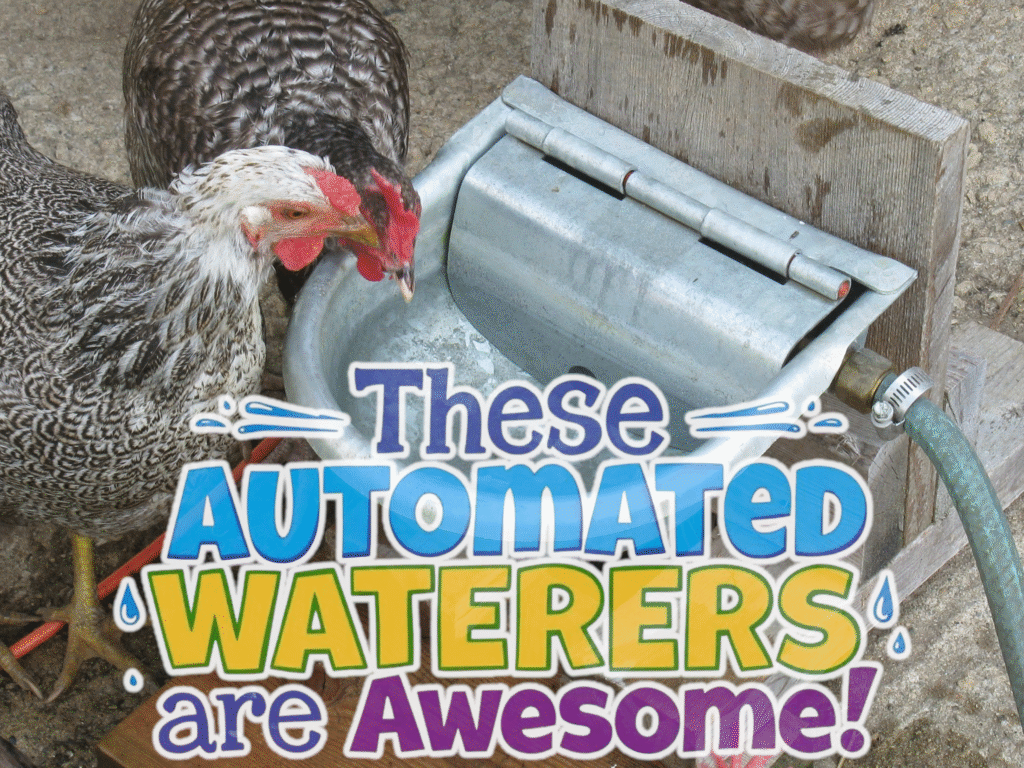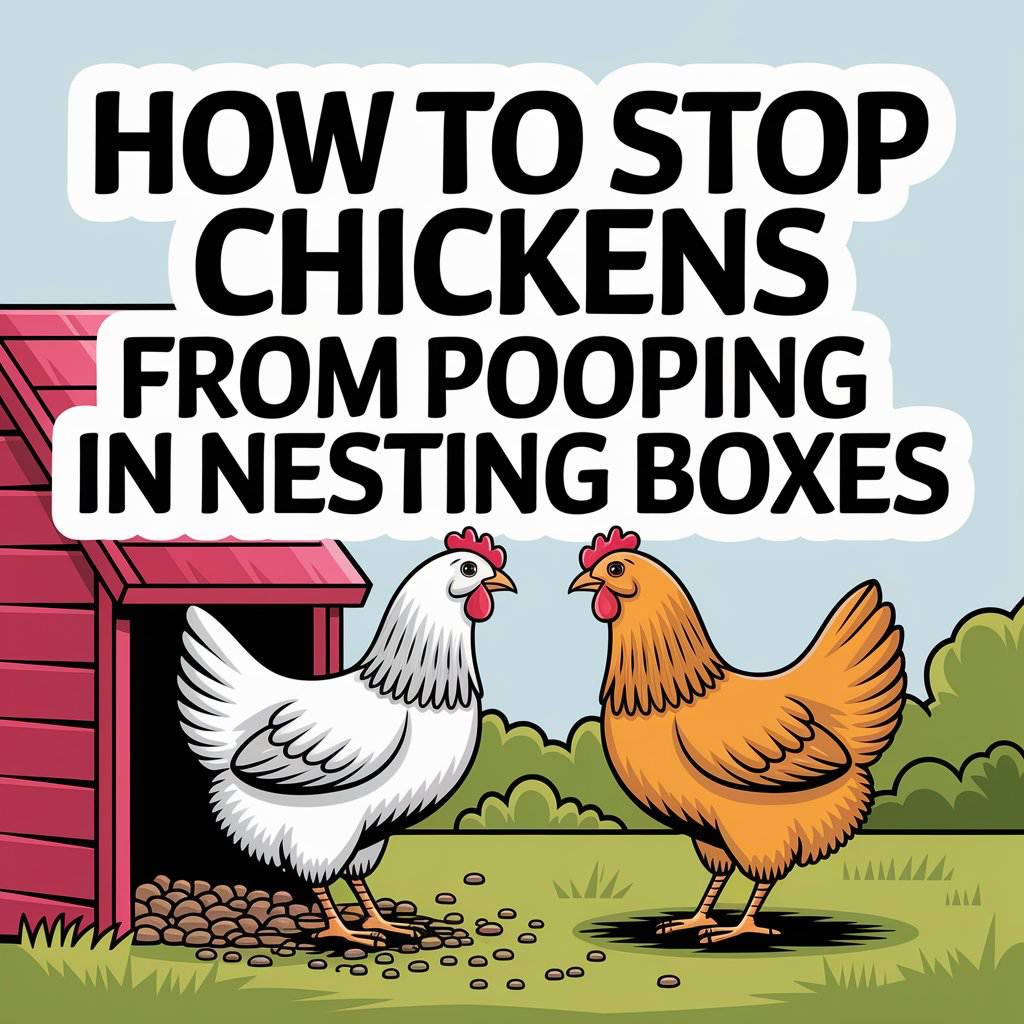
How to Stop Chickens from Pooping in Nesting Boxes (Without Losing It)
Keeping backyard chickens is supposed to be fun… until you reach into a nesting box and come out with an egg covered in chicken poop. Been there. It’s frustrating, gross, and not something you want to deal with every morning. If you’re wondering how to stop chickens from pooping in nesting boxes, you’re definitely not the only one.
I ran into this exact problem in my coop, and after trial, error, and a little coop redesign, I finally got things under control. Here’s what actually worked for me (and what didn’t), so you can enjoy clean eggs and a cleaner coop.
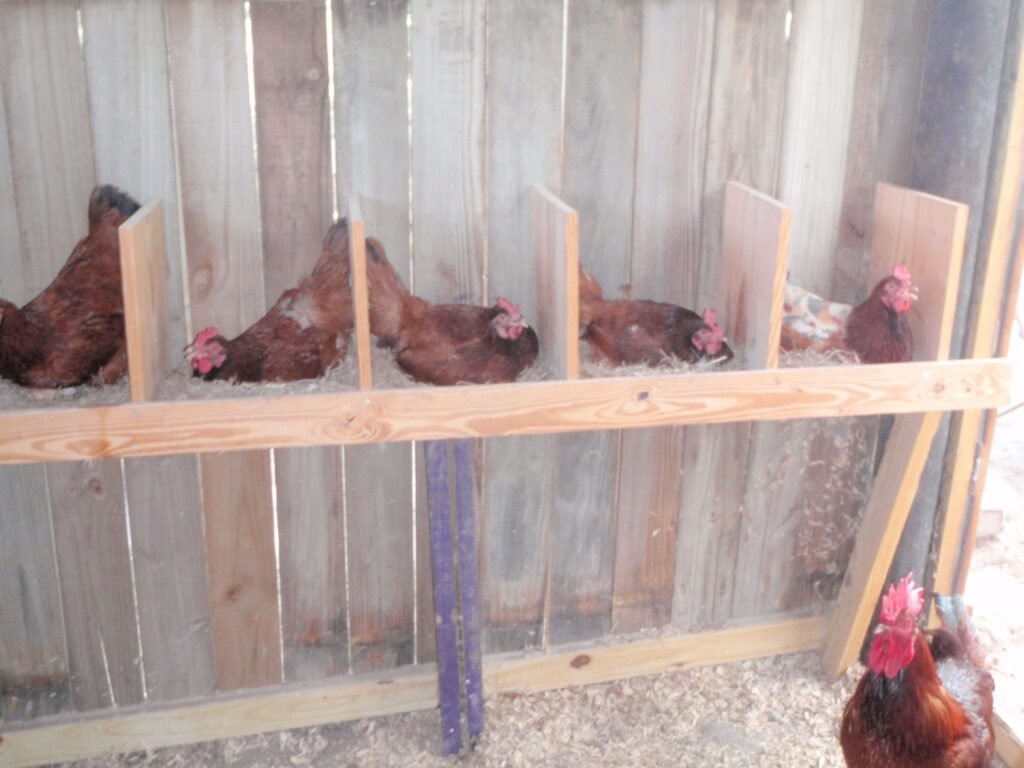
Why Do Chickens Poop in Nesting Boxes?
It’s tempting to think your chickens are just being stubborn or lazy, but the truth is—there’s usually a reason behind their poop-filled behavior.
Here are the most common causes I’ve seen firsthand:
1. They’re Sleeping in the Nesting Boxes
This is the big one. Chickens poop a lot at night, and if they’re snoozing in the nesting boxes instead of on a proper roost, you’ll wake up to poop in all the wrong places.
2. They Don’t Have a Roosting Spot
No designated perch? Your chickens will find the next best thing, and unfortunately, that’s often the nesting box.
3. Not Enough Boxes to Go Around
If you’ve got a flock of 8 hens and only two nesting boxes, it’s going to get crowded—and messy—fast.
4. Coop Setup Isn’t Chicken-Friendly
Poor ventilation, bad layout, or hard-to-reach perches might make the nesting boxes feel like the safest, comfiest place to hang out. And then… here comes the mess.
If your setup has any of these issues, don’t stress. We’re about to walk through what you can do to fix it, one step at a time.
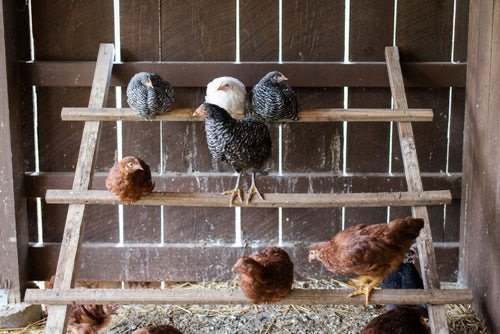
The Roosting Rule: Get Chickens Out of the Boxes at Night
If I could give only one tip, this would be it: chickens should roost, not nest, at night. When I first noticed the problem, I realized my girls were bunking down in the nesting boxes every evening—and leaving their mess behind by morning.
Here’s how I stopped it:
Raise the Roosts Higher Than the Nesting Boxes
Chickens naturally want to sleep up high. If your roosts are too low, or even level with the boxes, they’ll ignore them. I raised mine a good 18–24 inches higher than the nesting boxes and saw an instant change in their bedtime habits.
Make Roosts More Appealing
Use 2x4s laid flat so they have enough space to rest their feet. Don’t use narrow dowels or slick pipes—they hate those. Comfort matters!
Add a Slight Tilt to the Nest Box Roof
I added a little angled board over my nesting box tops so they couldn’t perch up there, just in case one clever hen tried it. Problem solved.
This one change alone made a huge difference in keeping chickens from sleeping and pooping in nesting boxes.

Block the Boxes at Night (Yep, Physically Block Them)
For the extra stubborn hens—or if you’ve got new chicks who haven’t learned the rules—I’ve found that simply blocking access to the nesting boxes after dusk works like magic.
I Use a Simple Board or Feed Bag
Every night just before sunset, I slide a feed bag over the entrance to each nesting box or place a board in front. In the morning, I uncover them when the hens are ready to lay. It’s easy once you get into the routine.
Do This for a Week or Two
Usually after 7–10 days, they get the hint. They start hopping onto the roosts at night like they’re supposed to, and your boxes stay poop-free.
This tip is especially useful if you’re working on how to stop chickens from sleeping in nesting boxes or breaking a new flock’s bad habits early.

Keep Nesting Boxes Dark and Boring
Chickens are curious little critters, and if your nesting boxes are too inviting—light-filled, cozy, or in a high-traffic area—they might just treat them like a lounge. One thing that helped me was making sure the boxes didn’t feel like a fun place to hang out.
Add Curtains or Flaps
I stapled some burlap feed sack strips to hang over the nesting box openings. It keeps things a little darker and more private, encouraging them to use it only for laying, not loitering.
Tuck Boxes Away From the Main Action
Don’t put your nesting boxes right where all the excitement is happening in the coop. Quiet, low-traffic spots help discourage chickens from treating the boxes like a bedroom.
You can see how I set mine up in this write-up about the nesting box setup that finally ended the egg hunt. Making these small tweaks made a big difference in keeping things clean.

Add Fake Eggs (Yep, It Works!)
Here’s one you might not expect: fake eggs or golf balls placed in the nesting boxes can teach your girls to associate those spots with laying—not loafing.
Why This Works
Chickens are visual learners. Seeing eggs in the boxes tells them “this is the place for laying, not lounging.” Once they get that idea, they’re less likely to squat in there overnight and leave a mess.
Pair This with Box Blocking
Use this along with nighttime blocking for a double whammy that breaks the habit quickly.
You can combine this strategy with the other tips from our post on why your hens might not be laying eggs—and how to fix it. A clean, inviting box (used only for laying) helps avoid any egg-laying hesitation too.

Make Sure There’s Enough Roosting Space
If your chickens are piling into the nesting boxes at night, it could be because they don’t have enough space—or the rightspace—to roost.
Chickens Like to Sleep Up High
Roosting is natural behavior, and they’ll almost always prefer to perch off the ground. If the roosts are too low, too crowded, or not cozy enough, they’ll pick the next best thing… and sadly, that’s often your nesting box.
A solid rule of thumb is about 8–10 inches of roost space per chicken, and make sure it’s placed higher than the nesting boxes. If you need some coop layout ideas, check out how I arranged mine in this article about the nesting box setup that finally ended the egg hunt—roost placement plays a big role.

Keep Their Coop Extra Clean (Yes, It Matters)
A messy coop can lead to messy habits. When bedding gets damp or dirty, chickens tend to move around looking for cleaner spaces—and guess where they’ll end up?
Coop Cleanliness Impacts Behavior
If the nesting boxes are the cleanest part of the coop, that’s where they’ll want to hang out. It helps to spot-clean daily and do a full clean-out at least once a week, especially in winter.
This goes hand-in-hand with what we covered in our post on how to stop algae in chicken water. Cleanliness affects everything—from egg health to water quality to nesting box habits.
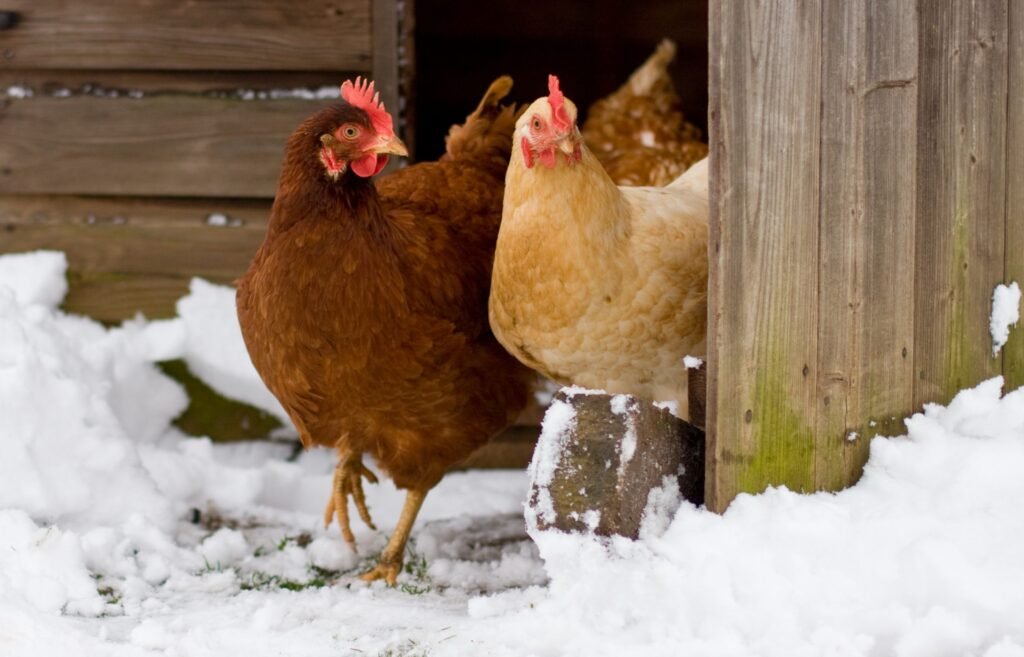
Block Off the Nesting Boxes at Night (If Needed)
If your flock insists on turning the nesting boxes into a cozy nighttime lounge, it might be time for some tough love.
The Temporary Evening Shutdown Trick
An easy trick that works for many chicken keepers: block off the nesting boxes in the evening once the hens are done laying. Just use a bit of scrap wood, cardboard, or even a hanging cloth to cover them. Then uncover them again in the morning.
Doing this for a few nights straight usually helps retrain them. If they can’t access the boxes, they’re forced to roost properly—and that’s often all it takes to break the habit.

Use Dummy Eggs or Nesting Herbs to Send a Message
Believe it or not, hens do pick up on cues. If you place dummy eggs (ceramic, wooden, or even golf balls) in the nesting boxes, they’ll associate those spaces with laying—not loitering or pooping.
Smell Can Help Too
Some folks swear by using nesting herbs—like lavender or mint—to make the boxes smell more like a relaxing spa and less like a sleepover den. This can help keep the boxes calm and egg-focused.
Pair this with a well-placed grit and oyster shell feeder nearby (like this one we tested) to encourage better daytime egg-laying behavior.
As an Amazon Associate we earn from qualifying purchases through some links in our articles.


